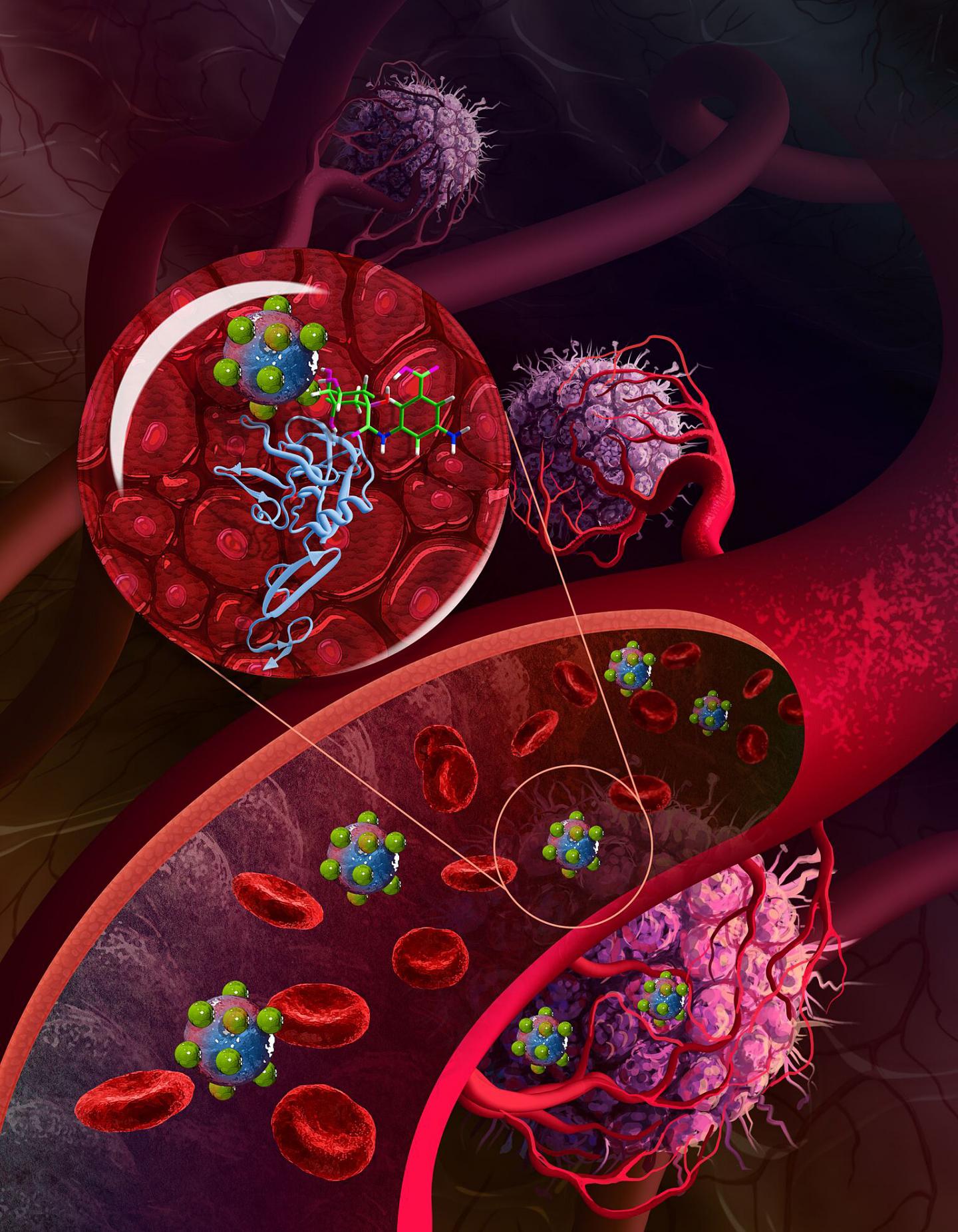
Purdue cancer identity technology makes it easier to find a tumor's 'address'

Purdue University researchers developed a technique to prepare polyol-modified nanoparticles so they locate cancerous cells and tumors by checking out blood vessels surrounding the tumors.
Credit: Yoon Yeo/Purdue University
Purdue University researchers have developed a technology aimed at making it easier to deliver cancer treatment to the right “address” in the body while also easing the painful side effects of chemotherapy on patients.
One of the big issues with chemotherapy is that most treatment approaches focus on the tumor itself without paying significant attention to the microenvironment surrounding the tumor. The new method is detailed in the nanotechnology journal Small.
“The traditional approach is similar to a delivery driver trying to drop off a package to a certain person without knowing their specific address,” said Yoon Yeo, a professor of industrial and physical pharmacy at Purdue, who is leading the research team. “Our new approach provides directions to find the specific address to deliver the chemotherapeutic drugs.”
The Centers for Disease Control and Prevention reports that each year, about 650,000 cancer patients receive chemotherapy in an outpatient oncology clinic in the United States. Patients receiving chemotherapy are at risk for various side effects that may lead to hospitalization, disruptions in chemotherapy schedules, and even death.
The Purdue method uses nanoparticles, which are considered promising carriers of drugs needed for chemotherapy to target tumors. The researchers developed a technique to prepare polyol-modified nanoparticles so they locate cancerous cells and tumors by checking out blood vessels surrounding the tumors.
The nanoparticles then interact with the vascular lining to enter tumors and destroy them. The Purdue researchers said their method helps the nanoparticles to exit from the circulation and enter tumors and better treat the cancer. They have tested the method on breast cancer and melanoma models and believe it also will prove effective for many types of cancerous tumors.
“Chemotherapy can be almost unbearable for most patients and we want to change that,” Yeo said. “Our method better targets tumors so lower dosages are required and the drugs do less damage to normal tissues.”
Their work aligns with Purdue's Giant Leaps celebration, acknowledging the university's global advancements in health as part of Purdue's 150th anniversary. This is one of the four themes of the yearlong celebration's Ideas Festival, designed to showcase Purdue as an intellectual center solving real-world issues.
The technology is patented through the Purdue Office of Technology Commercialization, and the research team is looking for partners.
###
About Purdue Office of Technology Commercialization
The Purdue Office of Technology Commercialization operates one of the most comprehensive technology transfer programs among leading research universities in the U.S. Services provided by this office support the economic development initiatives of Purdue University and benefit the university's academic activities. The office is managed by the Purdue Research Foundation, which received the 2016 Innovation and Economic Prosperity Universities Award for Innovation from the Association of Public and Land-grant Universities. For more information about funding and investment opportunities in startups based on a Purdue innovation, contact the Purdue Foundry at foundry@prf.org. For more information on licensing a Purdue innovation, contact the Office of Technology Commercialization at otcip@prf.org. The Purdue Research Foundation is a private, nonprofit foundation created to advance the mission of Purdue University.
Writer: Chris Adam, 765-588-3341, cladam@prf.org
Source: Yoon Yeo, yyeo@purdue.edu












